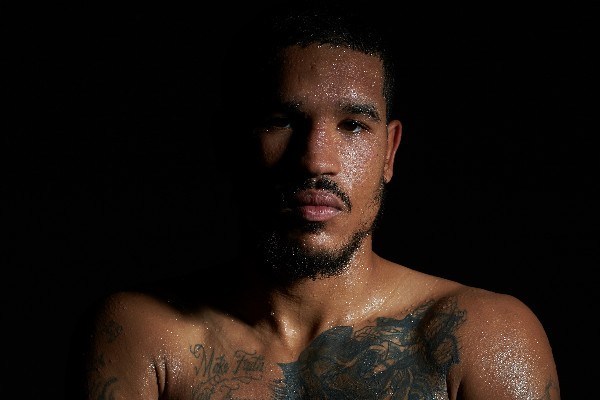
By Fightnews.com
“I’m going to be on the Olympic team,” 15-year-old Paul Kroll once said to fellow fighter and future coach Greg Hackett. Kroll was right. He made the Olympic Team, but after qualifying at the international level, Kroll became caught up in attempted murder charge that would render the boxer, once considered a media darling, forgotten.

Kroll’s story could have ended on that Saturday morning, Aug 20, 2016, but it didn’t. When he fights Aug. 10 at Temple University’s Liacouras Center, Kroll knows this season of the Kroll Show is about redemption.
“I don’t want that night to define me,” Kroll said of the night that he and three friends, one only 15, had an altercation over an ex-girlfriend. Over 50 shots were fired at the four friends that evening, and it was the actions of his friend Cardell Hellams that saved his life that night. Hellams now sits in a Pennsylvania State Prison, and is in his second year of a 10-year bid. His younger friend, the son of his first boxing coach, Dirk Gooden, who Kroll considered a brother, ended up being shot, fighting for his life in the hospital.
Kroll hadn’t fired any weapon but was charged nonetheless. As the case played out in court, Paul was placed on probation for his role in the shootout. Many in the boxing world wondered what had happened to the promising fighter after that night. A google search turns up news of his arrest, but then the trail goes cold.
Kroll’s story started like that of many fighters–humble beginnings, growing up in North Philadelphia’s Blumberg Projects, which were plagued with drive-by-shootings, assaults and drugs before they were unceremoniously demolished in 2016. It was during this time that Kroll showed an affinity for fighting, albeit not in any boxing ring. Kroll’s family was close. At eight years old, he began helping his father in the general contracting business, and grew up learning the trades–carpentry, electrical, flooring.
“One of the most important things my dad taught me is to work hard,” said Kroll, who, in addition to investing the hours training as a professional boxer, is an electrician, who volunteers his time to help people from the gym with issues at their homes.
When he was 14, Kroll’s father bought a house near 29th & Lehigh, and, away from the chaos of the projects, Kroll was drawn to a local boxing gym. He first snuck to the gym when he was 15, meeting Hackett and devoting himself completely to learning the sweet science. Hackett, who was his peer but would later become his coach, was amused when Kroll announced his Olympic plans, but noted the determination in the young man’s eyes. At 15, Kroll was starting his amateur career late as compared to most other Olympic hopefuls. Kroll won his first fight, and his parents got on board once they realized that boxing was not only Kroll’s passion, but it had drastically improved his grades and behavior in school. They were all-in, shuttling him to events, and making sure he had equipment. Kroll credits them with his success so far: “I wouldn’t have made it as far as I did without their support. I have a great support system and I’m very grateful to them.”
He quickly began to make a name for himself, ending his amateur career with 140 fights, 17 losses. He lost his first bout in the US Olympic Qualifiers, but made his way through the tournament via the Challenger’s Bracket and won a spot on the Olympic team, a feat that had only been accomplished before by Floyd





More News
IBF Asia Heavyweight Title Fight: Bisutti vs. Nattapong
Liu Gang, Brico Santig Join Forces
Highland’s Double Impact: August 18 at Lumpinee